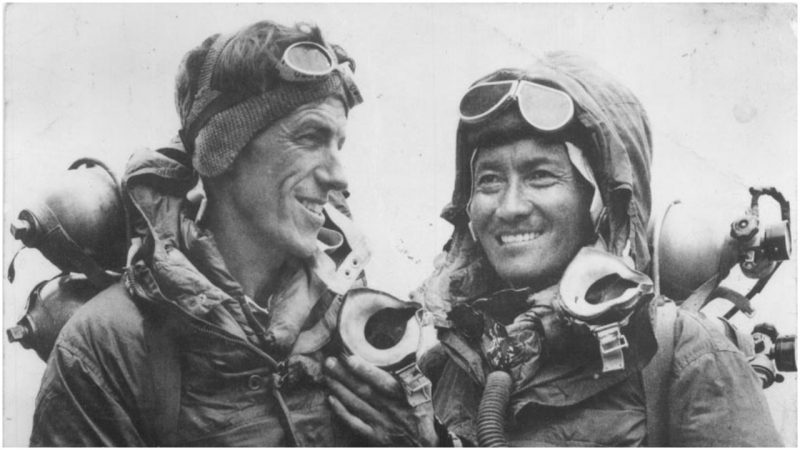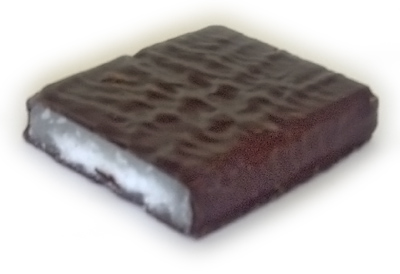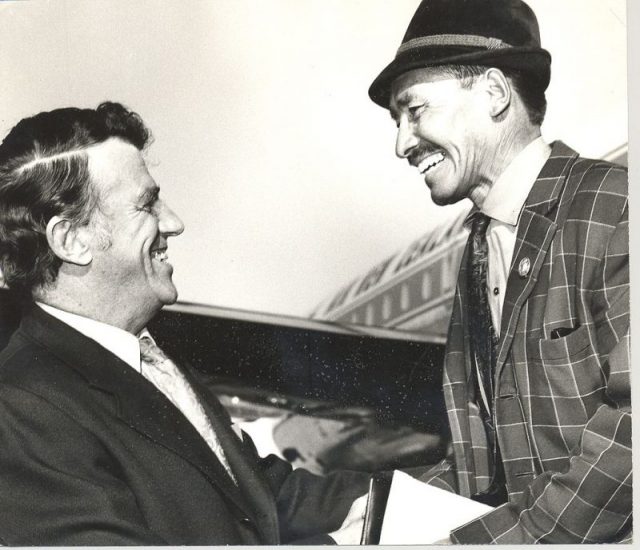
Surviving a summit of Mount Everest requires a daunting list of essential supplies that take months to assemble and costs hundreds of thousands of dollars. Among fueling necessities, however, is a decades-old British treat: the Kendal Mint Cake. In fact, the humble confection powered Edmund Hillary and Tenzing Norgay’s historic first ascent in 1953 of the world’s highest and most famous mountain.
More popular in the U.K. than the U.S., the Kendal Mint Cake is actually more like an oversized peppermint patty—with its granular mint-flavored sugar-based interior encased in chocolate—than the kind of thing you’d serve at a birthday party.
The formula for the cake, or candy, came about by accident in 1869, when an English confectioner named Joseph Wiper in Kendal, England, was trying to perfect his peppermint creams. Legend has it that he turned his back on the stove where he was boiling sugar, and the sugar began to granulate, turn opaque, and solidify. Wiper left the mixture to cool, and later decided the textured concoction was worth saving—with a chocolate coating, of course. Joseph Wiper began selling the Kendal Mint Cake, and several other local candy makers followed suit.

Kendal mint cake with chocolate coating
In 1914, Sir Ernest Shackleton included Kendal Mint Cakes in the supplies for the infamous and epic Imperial Trans-Atlantic Expedition, his failed but remarkable attempt to cross the Antarctic. The Wiper family seized on this to market the cake to local day hikers and hill climbers as an energy snack, and it was immediately popular.
To a mere mortal at sea level, a Kendal Mint Cake may not seem like a nutritional superstar—after all, it is made of just sugar, water, syrup, and peppermint oil. But the combination is perfect for a high-altitude trek for a number of reasons, and not just because of its portability.
On such a strenuous trek, climbers burn up to 20,000 calories a day. Oxygen begins to thin out at altitudes above 8,000 feet, which forces your body to concentrate blood to your most important organs: your brain, heart, and lungs. Digestive organs receive less blood, impairing their function.

Mount Everest, Himalayan
Mount Everest reaches a height over 29,000 feet. Foods high in protein and fat are too hard for your body to digest at that altitude, so in order to take in enough calories to power their efforts and to stay warm, climbers turn to fuel dense in easily digestible glucose, or sugar. Just one Kendal Mint Cake contains nearly 400 calories of easily accessible glucose.
Another dangerous problem at altitude is the twin problems of decreased appetite and food seeming terrible. The dry thin air decreases your ability to smell and taste, which makes consuming anything an unappealing prospect. The cake’s mint flavor, and the fact that is basically pure sugar, seems to make it easier to swallow.
A week before Edmund Hillary set off for Nepal, one of the members of his expedition saw a magazine advertisement for the Kendal Mint Cake, and promptly wrote to the manufacturer requesting a shipment of 38 pounds of the treat as part of their high-altitude rations. At the time, England was still adhering to post-World War II sugar rationing, so the request required approval from the Ministry of Foods.

Edmund Hillary & Sherpa Tenzing Photo:Kete Horowhenua CC BY-SA 3.0
At 11:30 on the morning of May 29, 1953, Hillary and Tenzing Norgay conquered the summit of Mount Everest. “We sat on the snow and looked at the country far below us … and nibbled Kendal Mint Cake,” Hillary later wrote to the candy supplier. “A member of the team said, ‘It was easily the most popular item on our high altitude ration – our only criticism was that we did not have enough of it.’”
In the 1980s, the Wiper family sold their candy-making operations to Romney’s, which still makes the famous Kendal Mint Cake today.
In a more modern (if less strenuous) accomplishment, Romney’s created a limited-edition of 200 cakes in 2016 to celebrate the 21st birthday of urban adventurer Kendall Jenner—labeling them Kendall Mint Cakes—conquering a kind of 21st-century peak.

